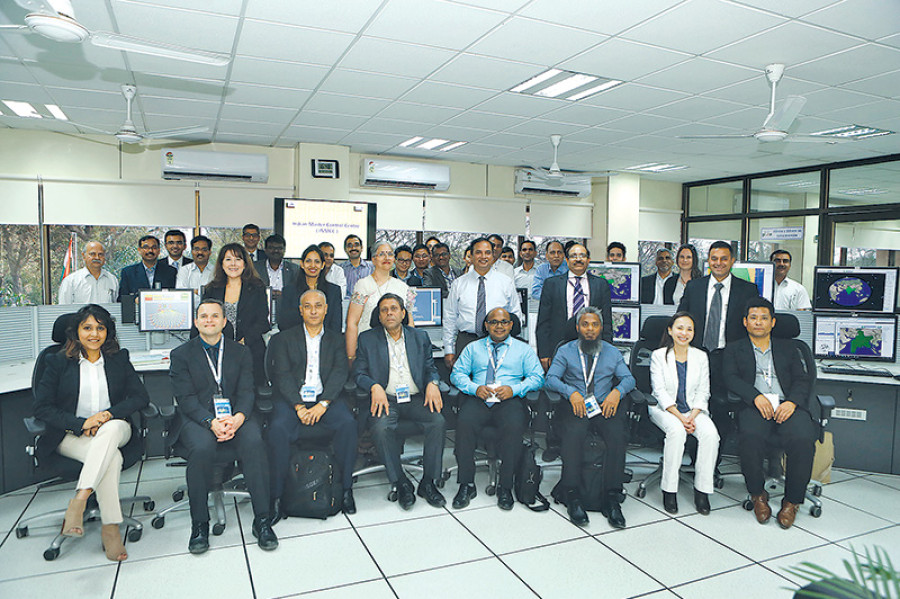Money
India for satellite-based navigation in SAARC
India has been lobbying member countries of the South Asian Association for Regional Cooperation (SAARC) including Nepal to join its advanced navigational satellite programme—GPS-Aided Geo Augmented Navigation (GAGAN)—for better management of air traffic in the Indian subcontinent.
India has been lobbying member countries of the South Asian Association for Regional Cooperation (SAARC) including Nepal to join its advanced navigational satellite programme—GPS-Aided Geo Augmented Navigation (GAGAN)—for better management of air traffic in the Indian subcontinent.
The system uses Satellite Based Augmentation System (SBAS) receivers during the approach and is an alternative to the current land-based navigational aids. GAGAN is jointly implemented by the Indian Space Research Organization and the Airports Authority of India (AAI) with the objective of providing satellite-based navigation services with accuracy and integrity required for civilian and aviation applications in the SAARC and Southeast Asian countries.
An AAI team recently gave a detailed presentation on the GAGAN system in Kathmandu and explained to Nepali officials the benefits of being part of the advanced satellite navigation system developed by India. Last March, the AAI conducted a two-day workshop for civil aviation representatives from Saarc and Southeast Asian nations to appraise them of the performance and benefits of GAGAN and provide them with hands-on experience of the functioning of the system.
“We are yet to reach a decision regarding India’s proposal,” said Rajan Pokhrel, deputy director general of the Civil Aviation Authority of Nepal (Caan). According to Pokhrel, Caan will assess the cost and other factors before making any decision. Both domestic and international airlines can use the system. It will mean extra expense for the airlines as they will have to install SBAS receivers, he said. “Hence, it is necessary to analyse the cost factor first.”
The Indian Directorate General of Civil Aviation (DGCA) has issued a directive mandating GAGAN equipage on all Indian registered aircraft entering the country on or after January 1, 2019. The AAI said that India was among the only four nations in the world to develop and deploy this ingenious technology that removes signal errors from Global Navigation Satellite Systems (GNSS) and provides highly precise navigation signals to users. Other countries that use such a system are the US, the European Union and Japan. According to reports, flight delays, diversions and cancellations can be minimised by adopting the SBAS. In addition, it enables direct ?ight paths and reduces minimum separation of aircraft, which decreases the workload for pilots and controllers. Hence, air traffic can be significantly minimised, especially in busy airspaces.




 20.12°C Kathmandu
20.12°C Kathmandu













